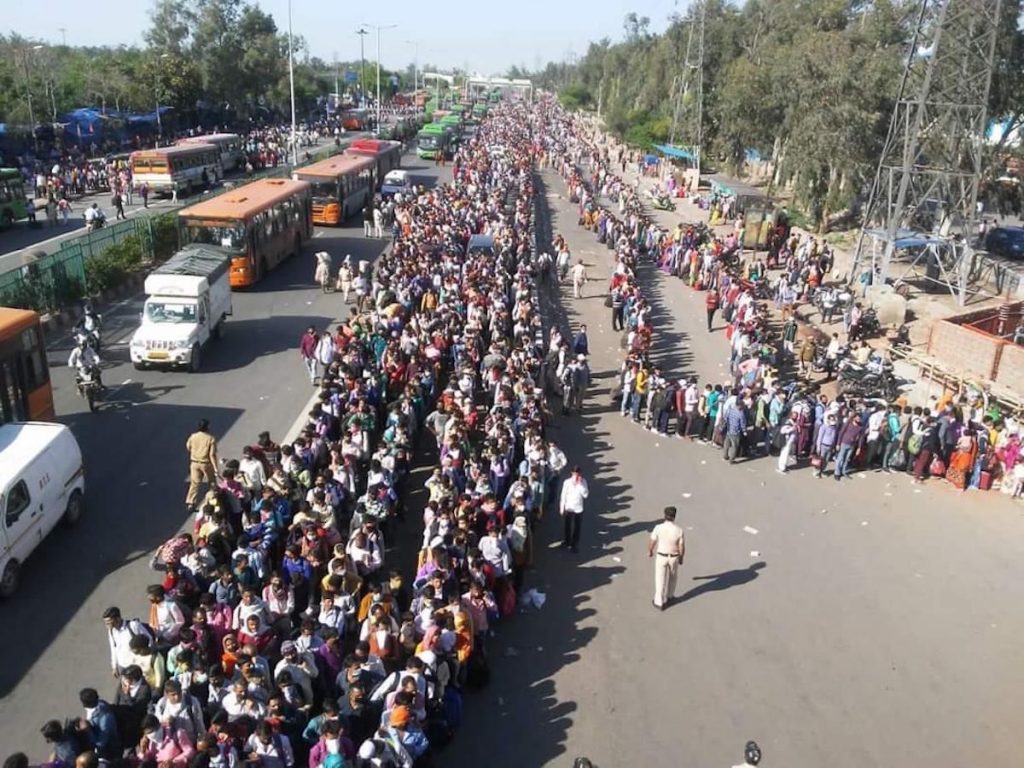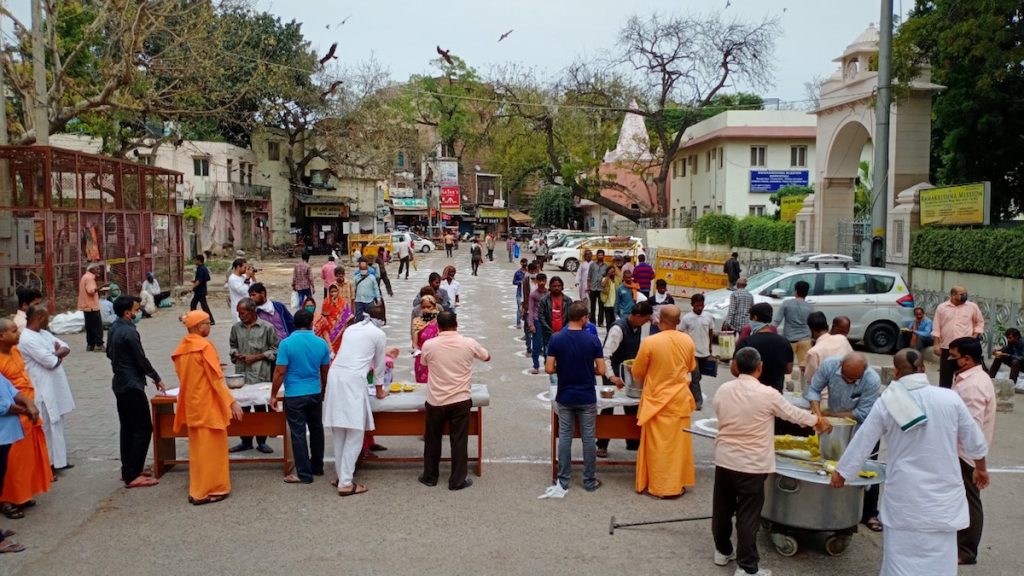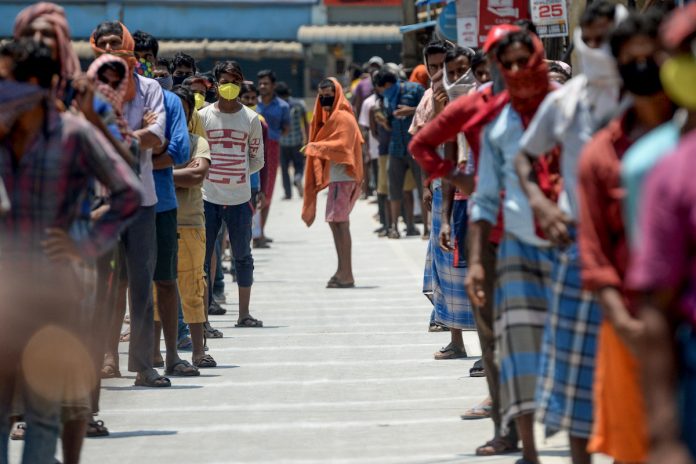Moin Ahmed was tired and weary. He put down his rucksack and inched towards the queue for free meals.
“I am returning to my village as I have lost my job. After walking for 17 hours my limbs are hurting,” he said.
Ahmed and his cousin brother Sohail used to work in a garment factory in the industrial town of Faridabad in the north Indian state of Haryana. A 21-day lockdown announced by the government last week to combat COVID-19 has forced factories, non-essential businesses and institutions to down shutters.
“If we don’t die of coronavirus we will surely die of starvation,” Ahmed said prior to March 29 when India’s states closed their borders.
They are not alone in their misfortune. Millions of daily wage earners share a similar fate. For them the unprecedented lockdown has spawned a range of problems — joblessness, poverty, food, accommodation and sanitation.
An estimated 450 million of India’s 1.3 billion people are considered migrants who seek work across the country’s states, the bulk come from Uttar Pradesh and the eastern states of Bihar, Jharkhand and West Bengal.
Many migrant workers are daily wage earners, others are domestic workers, street hawkers, rickshaw pullers and contractual cleaning staff who have also been hit hard by the lockdown. The majority live below the poverty line.
Before the borders closed, tens of thousands of migrants — even women and children — tried trudging hundreds of miles on foot to get to their homes.
They had few choices of transport. State buses, taxis and trains, but not counting aircraft, have been halted to contain the spreading of the virus.
Just days after the shutdown, many migrants, unaware that buses were been cancelled, crowded the inter-state bus terminus at Anand Vihar in Delhi on March 28.

Before the sealing of the borders, the state governments of Delhi and northern state of Uttar Pradesh pressed some buses into service. But it was a drop in the ocean.
There have been some cases of NGOs helping migrants by arranging vehicles and essentials.
Jaswant Singh, from Basti in Uttar Pradesh, told LiCAS.news that he and his family had wanted to leave Delhi and return to his home village.
“Me, my wife and two daughters walked for two hours to reach the bus station only to be told that no buses would be operating,” he said. “On the way, my wife and I were beaten up by the police. They want us to be off the road and settle into a night shelter,” he said. “It is not safe for women so we are dodging police by avoiding thoroughfares.”
If he was able to finish his trek, he estimated it would take them two weeks to get to their destination.
Following the sealing of the borders, many migrants sought to avoid police and took back routes, continuing their long walks. Some have died along the way.
Ranveer Singh, who worked at a restaurant in Delhi, died while walking back to his village in the central state of Madhya Pradesh. The 39-year-old father of three had, along with his friends, walked some 200 km till the historic city of Agra in Uttar Pradesh where he experienced chest pain and died of cardiac arrest.
Since state borders have been sealed thousands are left stranded across the country.

Jesuit Father Martin Puthussery told LiCAS.news that now the main worry for the migrants was hunger. Other issues they face were social ostracism because they are largely being seen as “outsiders.”
Local people think the migrants pose a health risk while politicians show little interest as migrants don’t constitute their vote bank, said Father Puthussery who is the coordinator of the migrant department of Indian Social Institute’s Bangalore division.
State governments, religious institutions and NGOs are also organising food for the migrants.
As part of that many churches and congregations are engaged in supplying food and throwing open their schools to house migrants.
As an example the Indian Missionary Society has provided food and other essentials to 400 people who have been stranded at railway stations and bus stands. Father Anand Mathew said they have been able to feed over 100 families daily.
The government claims to be feeding to 2.3 million migrant labourers and daily wagers. It has also announced a $23 billion fiscal stimulus package to help the poor during lock-in period to combat coronavirus in India which has recorded 2,567 infection cases and 72 deaths as of April 3.









